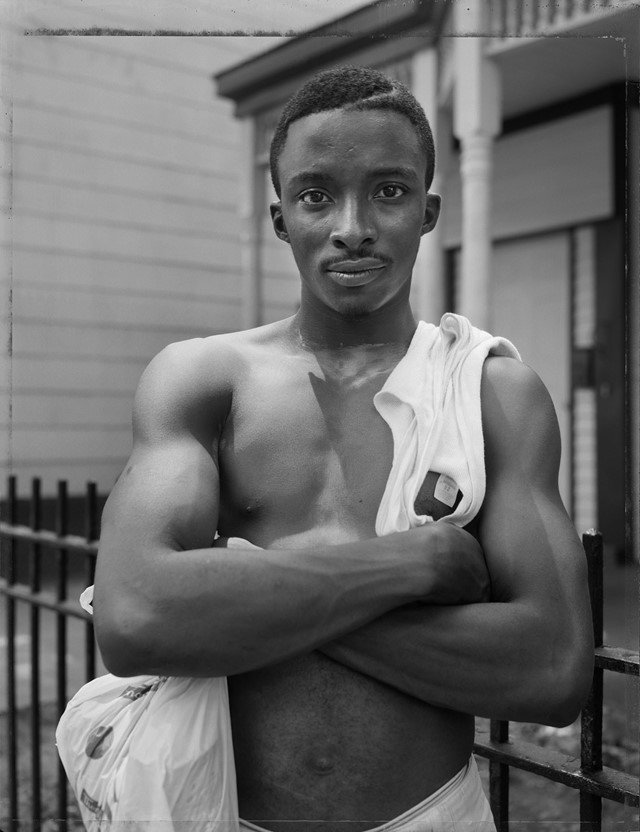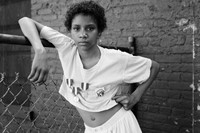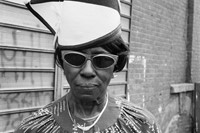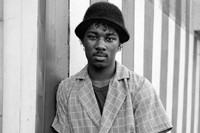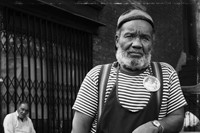Between 1988 to 1991, the Queens-born photographer created a series of collaborative portraits with Black Americans from across the country
Dawoud Bey has been photographing marginalised Americans for over four decades. His majestic portraits, which tend to be large-scale and formally structured, are mostly centred on the country’s Black population. For Bey, this focus is instinctual: the Queens-born photographer is driven by an urge to capture the everyday Americans he saw growing up, who he believed were misrepresented in the mainstream media. His work aims to defy stereotypes, adding complexity, nuance and depth to the individuals who have been neglected or forgotten by society.
His latest monograph, Street Portraits (MACK), is a testament to this skill. The portraits in the book, which are all taken between 1988 and 1991, show Black Americans of all ages “performing and presenting” for the camera. The setting is informal – the images were made in the streets of various cities across the US – which makes the intense intimacy between Bey and his subjects feel all the more disarming.
The photographer claims that he achieved this intimacy by turning the portrait process into a collaboration. After seeing a potential subject in the street, Bey would approach them and ask “can I make a picture with you?” He would then set up a tripod-mounted, large-format camera, and allow the person to pose in whatever way they felt comfortable. In doing so, Bey gave them a chance to choose how they were presented. It was a method that stood in stark contrast to other street photographers, who would typically use covert camera work to capture unsuspecting passersby.
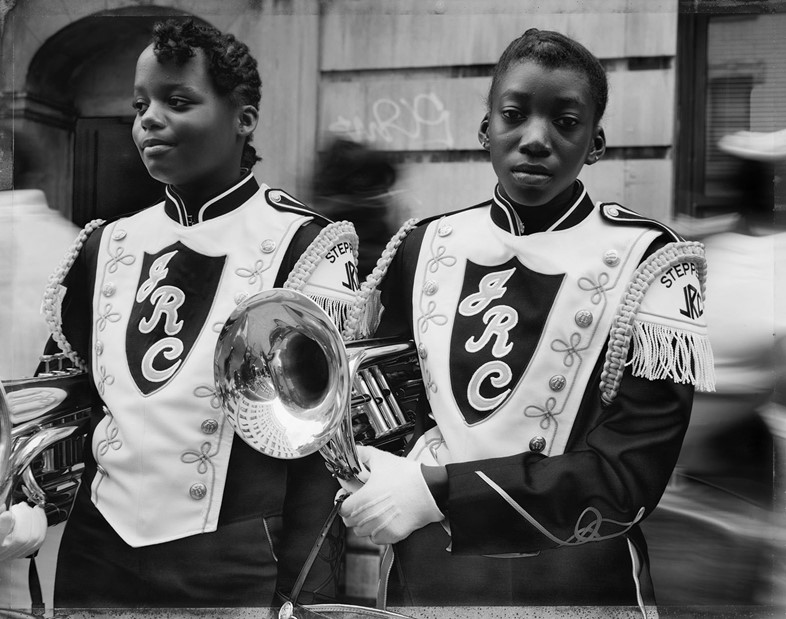
This year is the first time that all 73 of these street portraits are being shown together. And despite the three-decade lapse of time, they still feel relevant – both aesthetically and politically. On a surface level, the style shown in these images is fresh and timeless; a signifier of both Bey’s keen eye and the cyclical nature of fashion. But the psychological depth remains, too: in a country still riven with racial and socioeconomic divides, the quiet defiance on display feels just as radical – and necessary – now as it was then.
Street Portraits is available on MACK.
